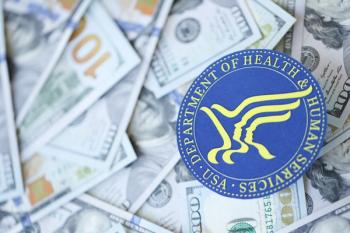
Physicians and Self-Prescribing: Just Say ‘No’
Although it’s often easier and faster to provide medical care to friends and family, physicians should learn to say “no” more often.
There is great uncertainty and misunderstanding in the United States regarding whether or not physicians are allowed to self-prescribe. Under federal law, physicians are not specifically prohibited from self-prescribing or prescribing for friends and family. According the Opinion 8.19 of the AMA Code of Medical Ethics, “physicians generally should not treat themselves or members of their immediate families.” The AMA cites the following reasons:
(a) Professional objectivity may be compromised when an immediate family member or the physician is the patient; the physician’s personal feelings may unduly influence his or her professional medical judgment.
(b) Physicians may fail to probe sensitive areas when taking the medical history or may fail to perform intimate parts of the physical examination. Similarly, patients may feel uncomfortable disclosing sensitive information or undergoing an intimate examination when the physician is an immediate family member.
(c) When treating themselves or immediate family members, physicians may be inclined to treat problems that are beyond their expertise or training.
(d) Family members may be reluctant to state their preference for another physician or decline a recommendation for fear of offending the physician. In particular, minor children will generally not feel free to refuse care from their parents. Likewise, physicians may feel obligated to provide care to immediate family members even if they feel uncomfortable providing care.
The AMA also cites certain examples of when it could be appropriate to undertake self-treatment or treatment of immediate family members. This would include emergency settings or isolated settings where there is no other qualified physician available. The AMA sees no issue with a physician providing routine care for short-term, minor problems; however, except in emergencies, it is not appropriate for physicians to write prescriptions for controlled substances (I, II, IV) for themselves or immediate family members.
While the AMA’s guidelines address the ethical issues for physicians, state law must be followed in every instance. Some states have laws that discipline a physician for prescriptions written outside the course of his or her medical practice, which could include self-prescriptions and prescriptions for those that do not have a documented patient-physician relationship. Additionally, the same conduct may also violate pharmacy statutes in those states that prohibit the filling of prescriptions which were not obtained through a physician-patient relationship. Every physician should find out what is allowed in their state and guide their conduct accordingly.
If you are allowed to prescribe in your state for yourself or family members, you should still think twice before doing so:
1. Ask yourself whether the particular issue is one which you feel you have the appropriate training and knowledge to be able to diagnose and treat. Are you up-to-date with the latest literature? Do you know all possible drug interactions?
2. Encourage friends and family members to see another physician when possible. You may be surprised and relieved to know they prefer to do so, but feel obligated to come to you.
3. Create a medical record even for friends and family members. Documenting the basis for a prescription can help support the existence of the doctor-patient relationship. Should a prescription be submitted to insurance, this may also be required. My practice has represented physicians who were sanctioned by the state medical board for failing to establish a physician-patient relationship with family members to whom they prescribed medications.
4. Remember that if a professional relationship ever becomes a personal one, the physician-patient relationship should be completely terminated and a referral made to another physician. Continuing to treat and/or write prescriptions once the professional relationship has ended, is inappropriate and can create licensure and liability issues.
5. When self-prescribing, make sure you treat yourself the way you would any patient. Is a second opinion appropriate? Are you sure you have the correct diagnosis and medicine or dosage? Do you really need the prescription and is there any possibility of dependency? Don’t take more chances with your own health than you would with a patient.
Although it’s often easier and faster to provide medical care to friends and family, physicians should learn to say “no” more often. Self-prescribing and prescribing for friends and family members can create legal and ethical issues for every physician, which are best avoided.
Find out more about Ericka Adler and our other
Newsletter
Optimize your practice with the Physicians Practice newsletter, offering management pearls, leadership tips, and business strategies tailored for practice administrators and physicians of any specialty.













